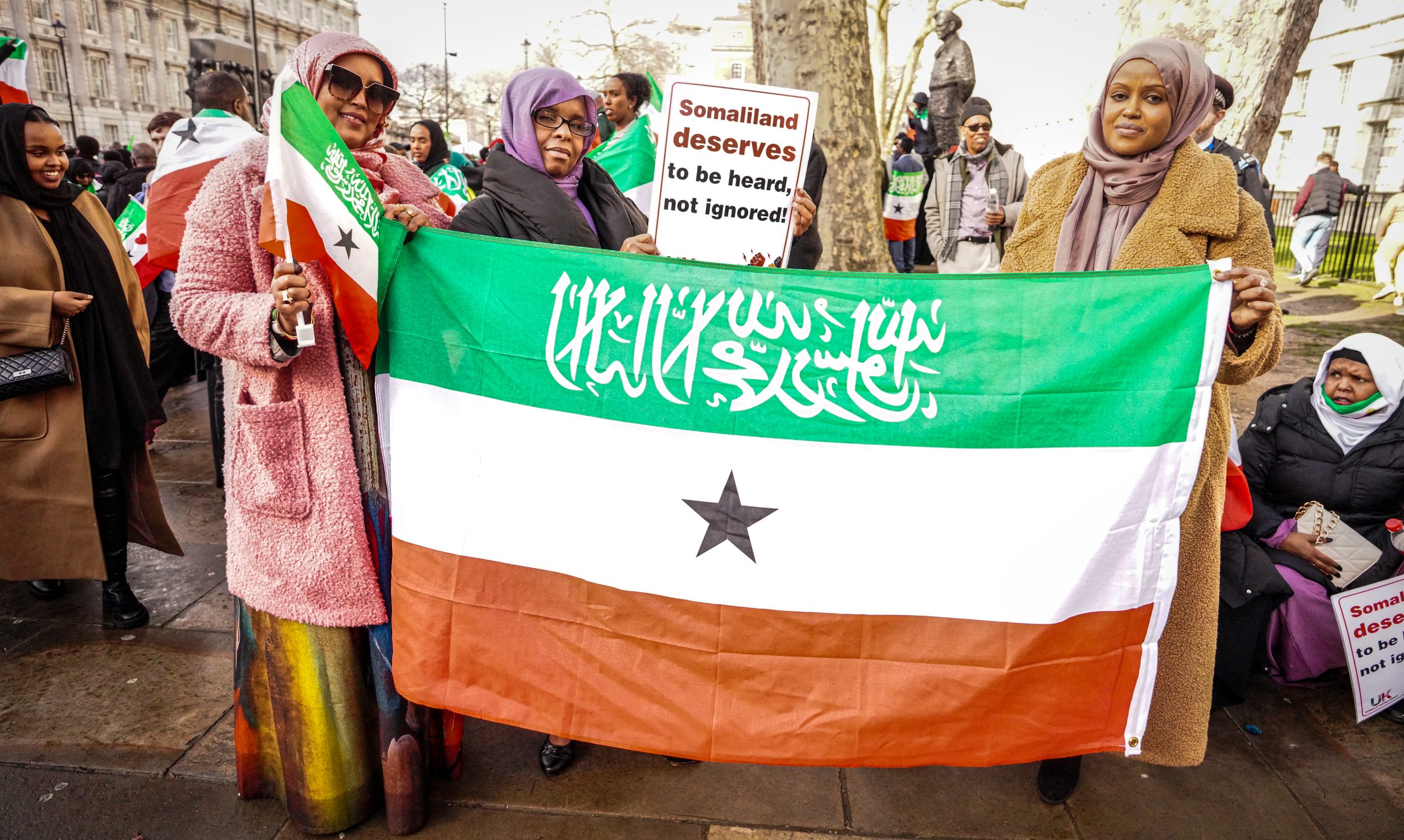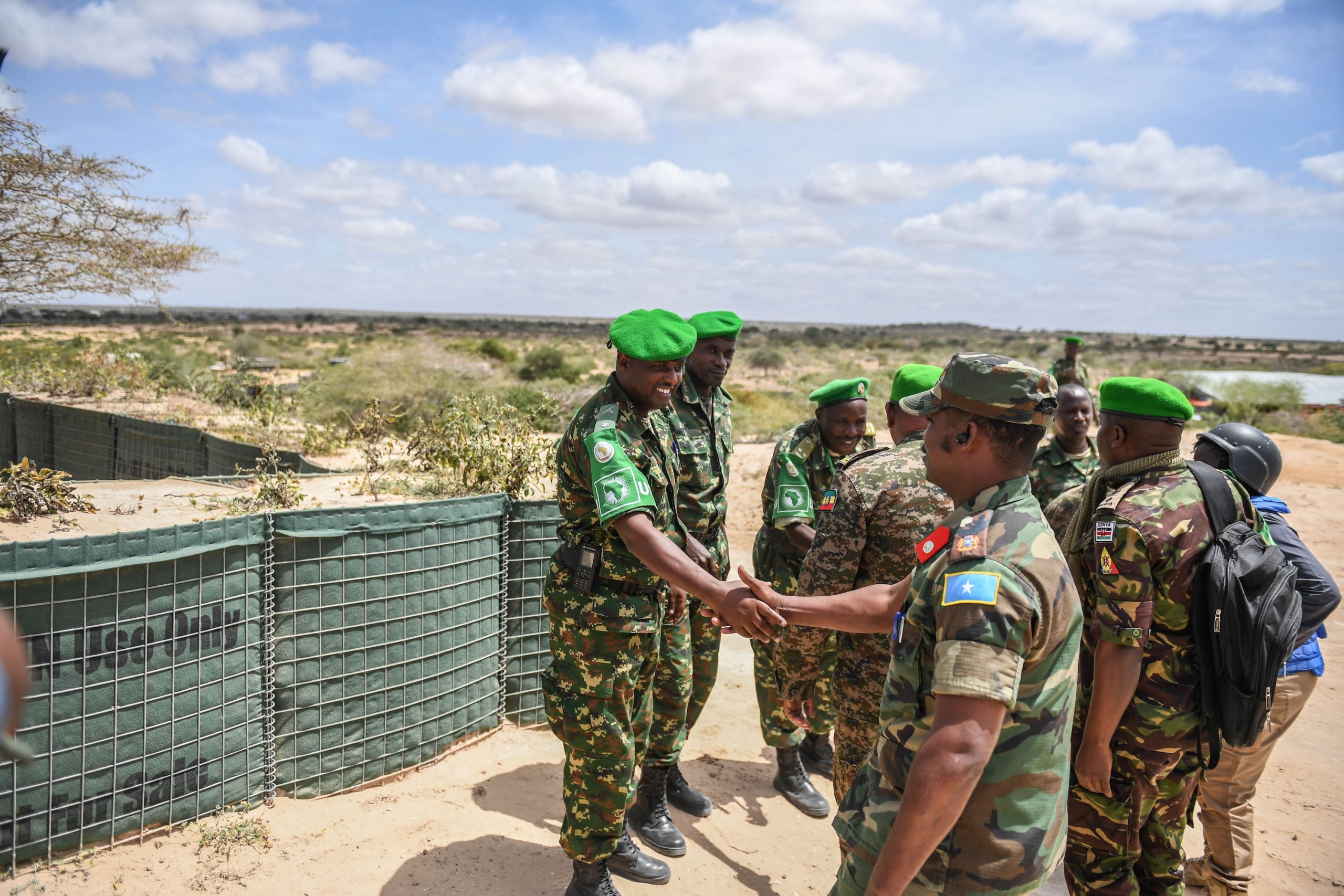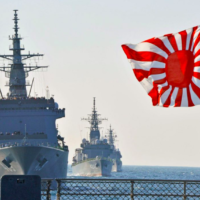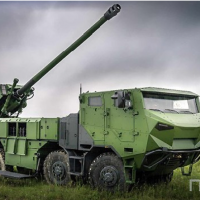Tensions in the Horn of Africa have surged following an unexpected announcement of a Memorandum of Understanding (MoU) between Ethiopia and Somaliland. The agreement reportedly involves leasing land for Ethiopia’s planned naval facility in exchange for potential recognition of Somaliland’s statehood. Somalia, contesting Somaliland’s sovereignty, strongly opposes the deal. Its primary concerns include the possible undermining of Somalia’s state-building efforts, the escalation of regional tensions reminiscent of past disputes and the bolstering of Al-Shabaab. As mediation efforts intensify, nations align themselves with either party. [1]
The Complex Evolution of Ethiopia-Somalia Relations
Ethiopia-Somalia relations have been shaped by historical wounds, with the modern history of Somalia bearing discernible Ethiopian influence. In 1960, the Somali Republic emerged from the amalgamation of the former British colony, now known as Somaliland, and the former Italian colony, now known as Somalia – mirroring the area from Puntland southwards. [2] Following its establishment, Somalia sought control over the Ethiopian Ogaden region, leading to conflicts with Ethiopia in 1964 and 1977-1978. [3] Despite President Siad Barre’s efforts to integrate Ogaden into „Greater Somalia,“ they were unsuccessful, resulting in retaliation from Ethiopia’s President Mengistu Haile Mariam. The ongoing instability led to the overthrow of Barre’s regime in 1991, Somalia’s dissolution, and Somaliland’s subsequent declaration of independence. [4]
The power vacuum and protracted conflicts within Somalia led to the emergence of the Islamic Courts Union (ICU), which seized control of Mogadishu and swathes of southern and central Somalia by mid-2006. However, a counter-offensive by the Transitional Federal Government (TFG) and Ethiopian forces in December 2006 fractured the ICU, leading to the strengthening of jihadist factions, including Al-Shabaab. The Djibouti peace talks, led by the United Nations in 2008 brokered a ceasefire, paving the way for the deployment of the African Union Mission to Somalia (AMISOM) and Ethiopian troop withdrawal in 2009. Since 2011, efforts have been made to combat Al-Shabaab, resulting in their (temporary) retreat from major urban centres. [4] The Federal Government of Somalia, led by President Hassan Sheikh Mohamud and supported by Ethiopia [5] has helped to stabilize bilateral relations between the two nations [6] – until the 2024 MoU saw the light of day.

MoU Provisions Remain Unclear
On January 1st, 2024, the Memorandum of Understanding between Ethiopia and Somaliland was announced. Its full text remains undisclosed, yet the portions that have surfaced to the public, have prompted numerous questions and reactions. Reportedly, Somaliland announced an agreement to lease land to Ethiopia for 50 years for the construction of a naval facility along its coast, in exchange for Ethiopia’s recognition of Somaliland’s statehood. [7] [8]
Ambiguity persists regarding the agreement’s specifics, including the extent of the leased area and supplementary provisions. Initially, Ethiopian authorities hinted at a multifaceted purpose for the proposed facility, encompassing both military and commercial functions. Conversely, Somaliland asserted that Ethiopia’s intent revolves solely around establishing a naval base, with Berbera port retained for trade operations. Regarding the area, the initial announcement indicated a 20-kilometre stretch of coastline for lease. But later, a prominent Ethiopian figure stated the deal’s coverage spans 20 square kilometres of both land and sea. Reports also differ on supplementary provisions, with some suggesting benefits for Hargeisa (Somaliland’s de facto capital), including shares in Ethiopian state-owned enterprises like Ethiopian Airlines. Pinpointing the precise location of the facility also proves challenging, with speculation ranging from the coastal town Lugaya, near the Djiboutian border, to proximity to the port of Berbera itself. [1]
The most contentious aspect of the memorandum is the recognition of Somaliland’s independence. [9] Hargeisa has linked the MoU to the recognition, [10] as it may serve as a political lifeline for Somaliland’s President Muse Bihi Abdi. [7] However, on January 3rd, 2024, just two days after the MoU was signed, Ethiopia released a tempered statement, indicating a need for thorough evaluation before taking a stance on Somaliland’s independence. [2] Ethiopian Prime Minister Abiy Ahmed faces international scrutiny as he navigates the delicate diplomatic balancing act, acknowledging Somaliland while showing restraint so that he does not entirely rupture relations with Mogadishu. [9]

Somalia’s Precarious Position
Mogadishu immediately rejected the Memorandum of Understanding, deeming it as a threat to its sovereignty and territorial integrity. [2] While it accepts commercial use of the Gulf of Aden Coast, it opposes a military base on what it considers Somali territory. [8] Consequently, Somalia recalled its ambassador to Ethiopia. It also prompted President Hassan Sheikh Mohamud to declare the deal „null and void”. [1] The deal’s divergence from the „One-Somalia“ policy and its perceived impact on Mogadishu’s stabilization efforts are Somalia’s major concerns. [2]
Somalia finds itself in a precarious position. Despite recent developments, Mogadishu has refrained from severing political or economic ties with Addis Ababa or preparing for conflict due to Ethiopia’s significant power advantage. Somalia’s limited territorial control weakens its negotiating position. [11] Additionally, there is crucial security cooperation between Ethiopia and Somalia. Addis Ababa has deployed thousands of troops to combat Al-Shabaab, both within ATMIS (African Union Transition Mission in Somalia which replaced AMISOM in 2022) and independently. Somalia faces the risk of Al-Shabaab benefiting from the tensions, historically exploiting anti-Ethiopian sentiments to gain support. Such development is concerning, especially amid ongoing discussions about the future of ATMIS. [1]

Memorandum Has Sparked International Backlash
The MoU has elicited vocal reactions across the Horn of Africa and beyond the region. Somalia’s traditional allies such as the European Union and the United States have strongly backed its stance. The Gulf states like Qatar, Saudi Arabia and the United Arab Emirates (UAE) have also expressed support for Mogadishu, albeit seeking to maintain balanced relations in the region. [1]
Djibouti and Eritrea, Somalia’s neighbouring countries, together with Egypt, have pledged support to Mogadishu due to strategic considerations. Djibouti’s support is driven by economic concerns. If Ethiopia were to diversify its trade routes according to its Prime Minister Abiy Ahmed’s personal preferences, Djibouti stands to lose a significant portion of its revenue. Djibouti currently collects over $1 billion annually in port fees from Ethiopia. Addis Ababa has relied on Djibouti’s port for over 95% of its imports and exports. [1] [2] [12] Egypt, amidst its ongoing dispute with Ethiopia over the Nile waters and apprehensions regarding competition in the Red Sea, perceives the agreement as a move by Addis Ababa to unsettle the region and assert dominance. [2] After the countries pledged support to Mogadishu, Somali President Hassan Sheikh Mohamud accepted invitations to visit Egyptian leader Abdelfattah al-Sisi and Eritrean President Isaias Afwerki. [8]

The role of the United Arab Emirates is especially ambiguous. [7] Despite Abu Dhabi publicly supporting the territorial integrity of Somalia, with which it has established a security partnership, it is also the only one (besides Ethiopia) that has circumvented Mogadishu to negotiate directly with the Somaliland government. [13] Abu Dhabi has done so due to its commercial interests, since it has already heavily invested in Somaliland’s major port, Berbera. The construction of the Ethiopian port may pose a threat to these interests. [7]
Turkey actively supports Somalia. In 2011, Turkey’s then-Prime Minister Recep Tayyip Erdogan made history by becoming the first non-African leader to visit Somalia in 20 years. Since then, Turkey has progressively established itself as a key economic and security partner of Somalia with its largest embassy complex worldwide located in Mogadishu. [13] In response to the MoU, Somalia further solidified this mutual partnership through a significant 10-year defence and economic cooperation agreement. Turkey should provide training and equipment for Somalia’s naval forces and contribute to coastal patrols. [14]
Mediation Underway to Prevent Escalation
Given the potential implications of the MoU for regional security, the first efforts at mediation and calming the situation, led by the African Union and its regional bloc IGAD (Intergovernmental Authority on Development), took place shortly after its announcement. Somalia clearly rejected those unless the MoU is retracted. [15] Ethiopia also absented from the IGAD meetings, suggesting a reluctance to engage in cooperative conflict resolution, potentially hindering progress. [16]
Nevertheless, there is another line of mediation going on. In Nairobi, President of Djibouti and IGAD chairperson Ismail Omar Guelleh and Kenya’s President William Ruto are spearheading „highly confidential“ negotiations to resolve the deadlock between Ethiopia and Somalia. According to the latest reports, William Ruto is suggesting a regional maritime treaty as a framework for resolving the dispute between Ethiopia and Somalia. However, its details are not yet publicly known. The role of IGAD in the current process also remains unclear. [17]

Memorandum Poses Threat to Future Regional Stability
The recent developments related to the MoU may have several outcomes. At present, it appears that it is unlikely that these tensions will escalate into a full-blown regional conflict. Somalia in particular lacks the resources and capacity to engage in warfare, making it an unfeasible option. [19] The remaining countries in the region including Ethiopia do not appear to be eager to engage in a full-scale war either. Instead, Somaliland may remain a hybrid entity, neither achieving international recognition nor fully integrating into Somalia. [2]
Despite that, a further escalation of regional geopolitical tensions and reshaping of regional alliances seem likely. Mogadishu and Cairo might intensify their cooperation, whilst clashes between Addis Ababa and Eritrea might renew as well. Additionally, rivalries between Djibouti and Somaliland may escalate, potentially hindering the state-building process in Somalia. Early indications of friction have emerged, such as Somalia’s interception of an Ethiopian plane bound for Somaliland. Ethiopia’s resurgence of nationalism under Abiy Ahmed may heighten tensions, while Egypt’s concerns about Ethiopia’s Red Sea ambitions could further escalate. Domestic conflicts such as worsening clashes in Somaliland’s Las Anod or Al-Shabaab attacks in Ethiopia could also contribute to regional instability. [2]
In summary, the Horn of Africa faces pressing tensions among Ethiopia, Somaliland, and Somalia. The discrepancy between Ethiopia’s security interests and Mogadishu’s focus on commercial aspects poses a significant challenge. Even if the MoU is halted, Ethiopia’s desire for improved sea access remains. Constructive dialogue between Addis Ababa, Mogadishu and Hargeisa is needed, along with addressing questions on sea access and Somaliland’s status. Mediation by external actors, prioritizing crisis de-escalation and core disputes in diplomatic agendas are crucial to prevent conflicting efforts.
Article reviewed by Veronika Zwiefelhofer Čáslavová, Kristýna Drmotová
Sources
[1] International Crisis Group. 2024. The Stakes in the Ethiopia-Somaliland Deal. Accessed March 26, 2024. https://www.crisisgroup.org/africa/horn-africa/ethiopia-somaliland/stakes-ethiopia-somaliland-deal
[2] Pinto, T. N. 2024. Ethiopia-Somaliland deal risks regional tensions. GIS. Accessed April 4, 2024. https://www.gisreportsonline.com/r/ethiopia-somaliland/
[3] Kendie, D. D. 2003. Toward Northeast African Cooperation: Resolving the Ethiopia-Somalia Disputes. Northeast African Studies. Accessed April 8, 2024. https://www.jstor.org/stable/41931376?seq=23
[4] Omar, M. 2012. Intervention In The Somalia Conflict. IGAD. Accessed April 8, 2024. https://ipss-addis.org/wp-content/uploads/2020/04/mpsa_anthology.pdf#page=12
[5] AP. 2012. Somalia’s new president officially takes power after assassination attempt. The Guardian. Accessed April 11, 2024. https://www.theguardian.com/world/2012/sep/16/somalia-president-power-assassination-attempt.
[6] Khalif, A. 2022. Somalia, Ethiopia sign deal to strengthen ties. The East Africa. Accessed April 11, 2024. https://www.theeastafrican.co.ke/tea/news/east-africa/somalia-ethiopia-renew-cooperation-3969292.
[7] Mahmood, O. 2024b. Somalia, Somaliland and the Explosive Port Deal. Accessed March 24, 2024. https://www.crisisgroup.org/africa/horn-africa/somalia-somaliland/somalia-somaliland-and-explosive-port-deal
[8] Aynte, A., Bryden, M., Mohamoud, K. H. 2024. Could Ethiopia and Somalia go to war? / Inside Story. Al Jazeera English. Accessed March 26, 2024. https://www.youtube.com/watch?v=H64MmhulAC8&t=718s
[9] Weldemariam, A. 2024. Ethiopia’s Port Deal With Somaliland Could Endanger Regional Stability. The Maritime Executive. Accessed April 8, 2024. https://maritime-executive.com/editorials/ethiopia-s-port-deal-with-somaliland-could-endanger-regional-stability
[10] Bihi, M. 2024. The Interview: Naval base to be leased to Ethiopia ‘strictly for military purposes, not commercial activities’ – Somaliland leader Muse Bihi. Addis Standard. Accessed April 4, 2024. https://addisstandard.com/the-interview-naval-base-to-be-leased-to-ethiopia-strictly-for-military-purposes-not-commercial-activities-somaliland-leader-muse-bihi/
[11] Bryden, M. 2024. Why Somalia is so concerned about Ethiopia’s deal with Somaliland. DW News. Accessed March 28, 2024. https://www.youtube.com/watch?v=yWC4hyO4JiU
[12] Yibeltal, K. Ethiopia signs agreement with Somaliland paving way to sea access. BBC News. Accessed April 4, 2024. https://www.bbc.com/news/world-africa-67858566
[13] Bishku, M. 2024. Turkey and Ethiopia have had close ties for many years: Somalia maritime deals may shift the dynamics. Accessed April 8, 2024. https://theconversation.com/turkey-and-ethiopia-have-had-close-ties-for-many-years-somalia-maritime-deals-may-shift-the-dynamics-225981
[14] Takambou, M. M. 2024. Somalia-Turkey security deal: How does it impact Ethiopia? Accessed April 9, 2024. https://www.dw.com/en/somalia-turkey-security-deal-how-does-it-impact-ethiopia/a-68375405
[15] Paravicini, G & Endeshaw, D. 2024. Somalia rejects mediation efforts with Ethiopia over port deal. Reuters. https://www.reuters.com/world/africa/somalia-rejects-mediation-efforts-with-ethiopia-over-port-deal-2024-01-18/
[16] Webb, M. 2024. What the Ethiopia-Somaliland deal means for Washington’s strategy in the Red Sea. Atlantic Council. Accessed April 11, 2024. https://www.atlanticcouncil.org/blogs/africasource/what-the-ethiopia-somaliland-deal-means-for-washingtons-strategy-in-the-red-sea/.
[17] Endale, A. 2024. ‘Top secret’ talks underway to mediate Ethiopia, Somalia on MoU saga. The Reporter. Accessed April 14, 2024. https://www.thereporterethiopia.com/39650/
[18] Addis Standard. 2024. News: Somalia rejects Ethiopia-Somaliland MoU, recalls ambassador to Ethiopia. Addis Standard. Accessed April 10, 2024. https://addisstandard.com/news-somalia-rejects-ethiopia-somaliland-agreement-recalls-its-ambassador-to-ethiopia/
[19] Jama, G.A., Maruf, H., Weldemariam, A.W. 2024. Will the Ethiopia-Somaliland Pact Upend the Horn of Africa? – Straight Talk Africa. VOA Africa. Accessed March 29, 2024. https://www.youtube.com/watch?v=9NomnmqF9Qk





